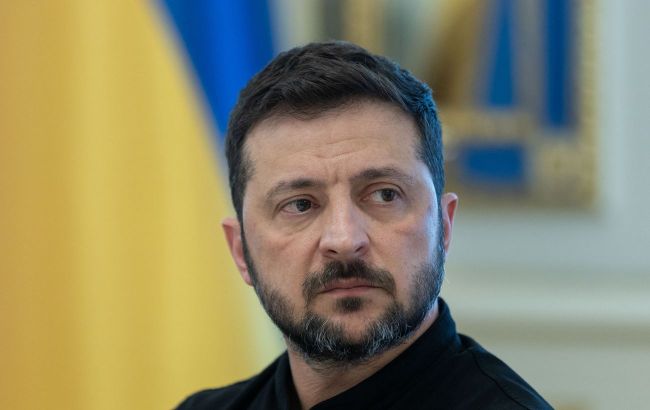Zelenskyy in Brussels: Security must work in practice, like NATO's Article 5
 Photo: Ukrainian President Volodymyr Zelenskyy and President of the European Commission Ursula von der Leyen (Getty Images)
Photo: Ukrainian President Volodymyr Zelenskyy and President of the European Commission Ursula von der Leyen (Getty Images)
Ukraine insists on real security guarantees that will work in practice, just like Article 5 of NATO, Ukrainian President Volodymyr Zelenskyy states on the joint press conference with the President of the European Commission Ursula von der Leyen in Brussels.
"We need security to work in practice, like Article 5 of NATO. And we consider EU accession to be part of security guarantees," emphasized the President.
He noted that Kyiv heard from the President of the United States, Donald Trump, that America and the Russian dictator Vladimir Putin look at this in the same way.
"So, we talked about EU accession negotiations. There can be no division between Ukraine and Moldova. If such a division takes place it will automatically mean that Europe is divided on Ukraine, that Europe does not have a common and strong position on security guarantees," he stressed.
Negotiations on accession to the EU
The issue of Ukraine's accession to the European Union remains at the center of international discussions, but individual countries still block the process.
Already in May, the President of Ukraine declared Kyiv’s readiness to begin negotiations regarding membership. At the same time, the main obstacle for the start of dialogue remains the position of Hungary, which vetoes the adoption of the corresponding decision in the EU.
Prime Minister Viktor Orbán has repeatedly stated that the enlargement of the European Union at the expense of Ukraine allegedly will "destroy Hungary" and may drag the EU into direct confrontation with Russia.
According to him, the majority of Hungarians are opposed to Ukraine's membership in the bloc, and it is precisely this that he presents as the argument for his tough position.
Unlike Ukraine, Moldova does not have similar political obstacles. Initially, in Bucharest, it was stated that negotiations on Chisinau’s accession were to begin in the summer; however, this was later clarified as premature. Despite this, Moldova’s advancement on the path to the EU now looks somewhat faster.
Ukrainian diplomacy emphasizes that Kyiv and Chisinau must move in synchrony and open negotiations simultaneously.
This was earlier emphasized by the Minister of Foreign Affairs of Ukraine, Andrii Sybiha. Yet despite these calls, recent reports of Politico indicate that in the EU they are seriously considering the option of opening the first negotiation cluster precisely for Moldova.

